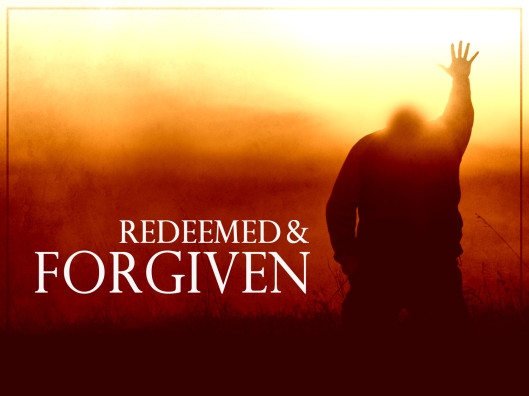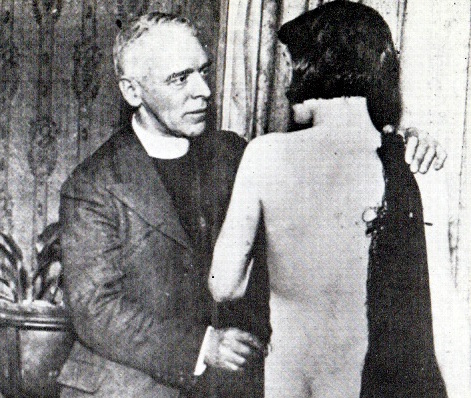
I was talking to a chap the other day after our usual Saturday morning preaching session in the local town. He wanted to know why we were bothering, science, he said, explained everything, so why did we need Jesus – all there was, he said, was what we saw. So, I asked him. did he think there were no radio waves? when had he last seen one – and yet his radio worked. How did he feel about electricity, where, again, he could see the results but not the thing itself. We live in a world where there are all sorts of things which we can’t see, but we can see evidence suggesting things we can’t see exist and matter – so why be so in denial about the spiritual?
We ended up having a coffee, as he seemed to want to talk further. It turned out he was in town buying a wedding present for his daughter who is getting married at the end of the month. As I’ve two daughters, we ended up chatting about modern youth – the way you do. His lass had just taken out a mortgage on a house with her future husband. There you go, I said, proof positive that there is more to this world than things we can measure and weigh. After all, I pointed out, his daughter was just making a huge and life-transforming decision on the basis of what – a feeling? She loved her fiance, and he loved her – but what proof did they have of that – except their committing their lives to each other? What sort of scientific decision was that? Could they weigh and measure love? I assumed that her future husband thought his future wife was a beautiful but again, where was the proof she really was? Had she been weighed, measured and compared against what society considers ‘beautiful’? Was there even a scientific consensus on what beauty was? Rubens, after all, liked his women to have plenty of curves, whilst modern fashion designers like the opposite. Yet, again, people make life-changing decisions without what scientists would call ‘evidence’. So why, when we allow so much leeway for non-scientific ‘evidence’ do we insist on it in the realm of the spiritual?
Our western society is in denial about the one thing to which all humans are heir – death. Where, for our ancestors, even for my parents generation, and certainly for their parents, death in the midst of life was common enough to have acquired whole sets of rituals – laying out in the parlour comes to my mind, and the wearing of black by widows – we are in denial. Funerals ‘celebrate’ the ‘life’, because so many believe that after that there is nothing. Life exists because it exists, we die, perhaps procreate, we consume, and we die. There is no ‘purpose’. Yet few people act as though that is the case, we act as though it matters what we do with our life, because we have an inbuilt sense that it does matter. But the moral codes which underpin our lives here in the West rest on Christian foundations of what is good and bad, and as we distance ourselves from that, it is by no means clear that the moral codes will survive.
Already we actually have discussions about at what stage it is right to kill and infant in the womb, not because its survival might threaten the life and health of the mother in a physical way, but because the woman has the ‘right to choose’. To a consumerist society that sound seductive. But we all ignore the fact that rights are not absolutes – we all have to negotiate with others about which ‘rights’ matter and where my rights end and their rights begin – how do we coexist? For this we have relied on shared values. But I am not sure that we any longer share as many as we imagine. If her right to choose means her partner or her baby in the womb have no rights, then that’s not an assertion of any moral principe, it is an exercise in power dynamics.
If we see no wider purpose in life except consuming and materialism, then it makes sense to concentrate on our own selfish needs. Babies cost money, children cost much more, why bother? Use your money on yourself. No doubt some way will be found to provide the next generation of workers to pay for your pension and to look after you in your care home.
The evidence is, it seems to me, that materialism produces an impoverished existence for most folk. It suits a society based on knowing the price of everything and the value of nothing. At any rate, it was good to see the chap at our meeting on Sunday, and I hope he’ll come back. There’s more to life than we can see – as we can see by looking at it.










You must be logged in to post a comment.